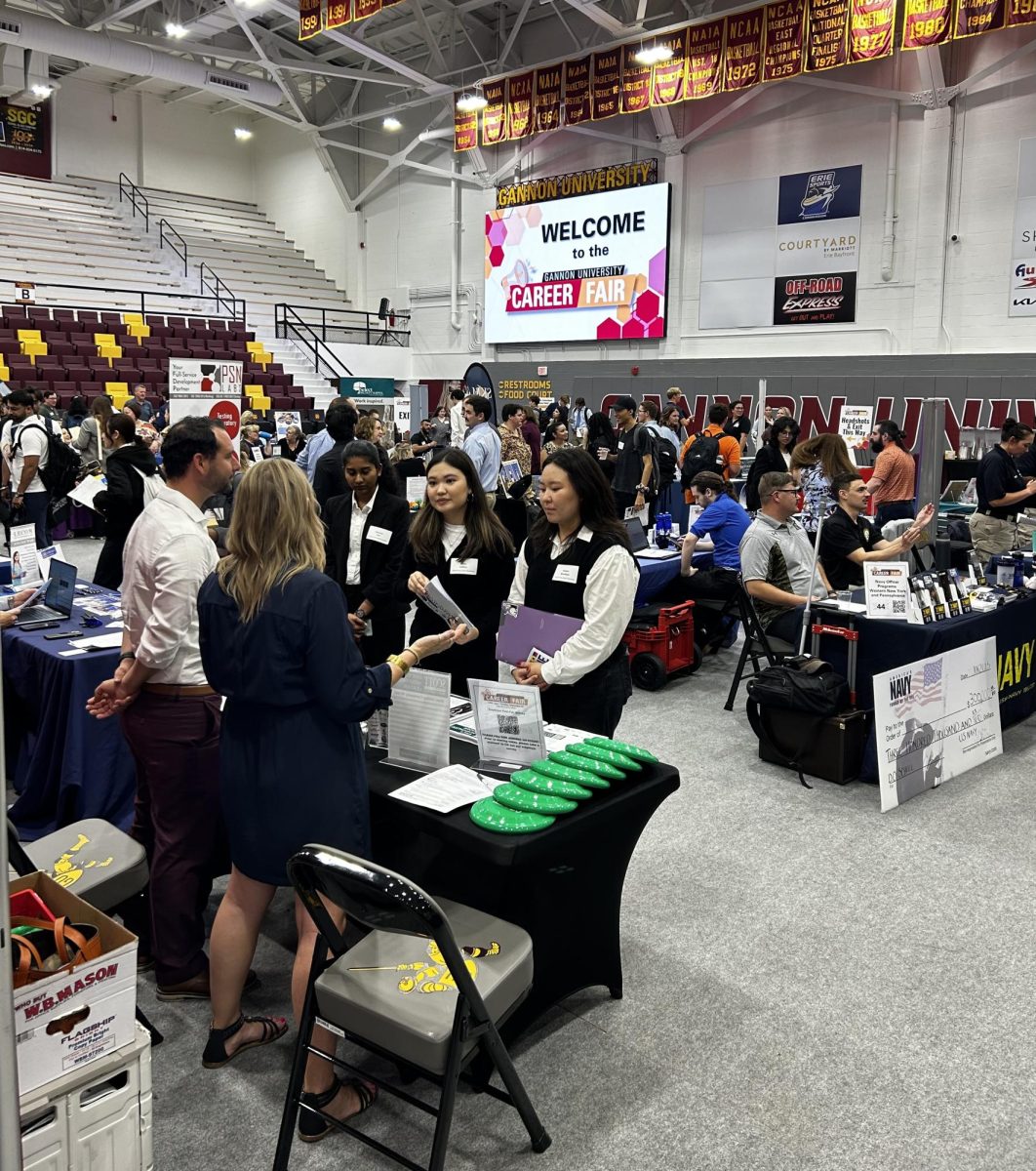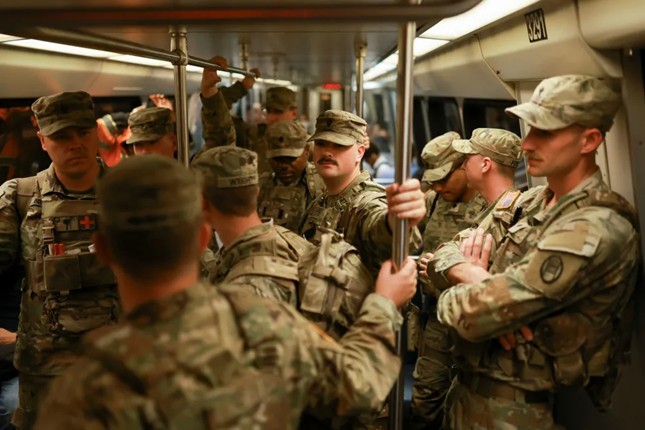Author and historian Doris Kearns Goodwin visited Gannon University Monday night to speak about her recent book and examine presidential leadership in turbulent times.
Goodwin spoke to a crowded Hammermill Center and ended up earning a standing ovation.
She was introduced by the president of the university, Keith Taylor, Ph.D.
She came to Gannon to be part of the Global Summit put on by the Jefferson Educational Society. This is the 10th summit the society has held.
This year’s summit began Oct. 29 and will end Friday.
Ferki Ferati, president of the Jefferson Educational Society, began Monday’s event thanking the sponsors of the summit.
As Goodwin took the stage, she was met with applause from the audience.
She began speaking about her “guys,” former presidents whom she has studied in great detail. She clarified that she meant no disrespect; it was just the relationship she felt she had with them.
The talk revolved around the topic of Goodwin’s book, “Leadership: In Turbulent Times.” This focused on four presidents and various qualities that make a great leader.
She called these traits to be in the same family of leadership qualities.
All leaders, Goodwin said, possess some qualities of their own.
In this talk, she discussed traits and anecdotes from Theodore Roosevelt, Abraham Lincoln, Franklin Delano Roosevelt and Lyndon Johnson.
When speaking about traits, Goodwin included a constant growth and perseverance, being able to build a good team willing to question you, the ability to create a motivated culture, a connection with all sorts of people and the knowledge on when to risk it all.
In concluding, Goodwin called the audience to action. She addressed the bad but said where there has been potential.
“There has been shown a polarization in the political climate as seen in the midterms, but there’s also been encouraging signs,” Goodwin said.
In these encouraging signs, she said that more young people have voted than in 2014, there have been new candidates rising up, including more women and the redrawing of voting areas in nonpartisan ways.
She said it is up to everyone to create change.
Though the people she spoke about are dead, they don’t need to be forgotten, she said.
“These people can live on and change lives,” Goodwin said. “We can tell and retell their stories.”
She ended to a standing ovation before moving into a question and answer portion. During this, questions from the audience had been collected and several were brought to the front to be read and answered.
This started on a personal note, asking about Goodwin’s late husband. Eventually, the questions shifted away from this to more about the presidents discussed in her book.
Before this, there was a pause on the current political climate centering around President Donald Trump.
She said that she understood his rise and why people voted for him. She said people felt left behind.
“We as a nation need to figure out and understand why so many people felt left behind,” Goodwin said.
She also commented on ambition, referencing a statement she had said at the beginning on her talk about ambition.
She also said, “ambition for self to become ambition for nation.”
The talk ended with a book signing.
Alexa Rogers







